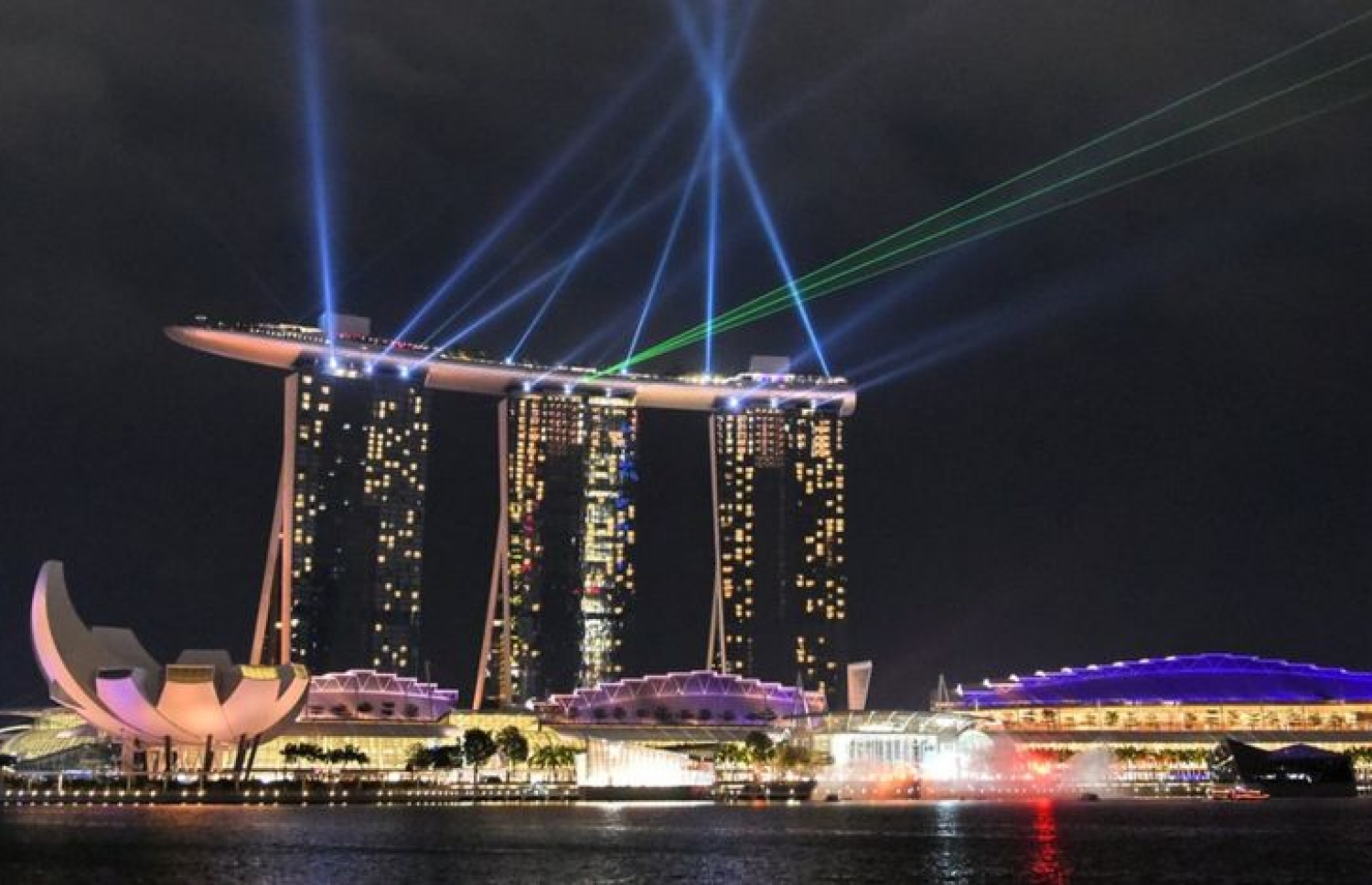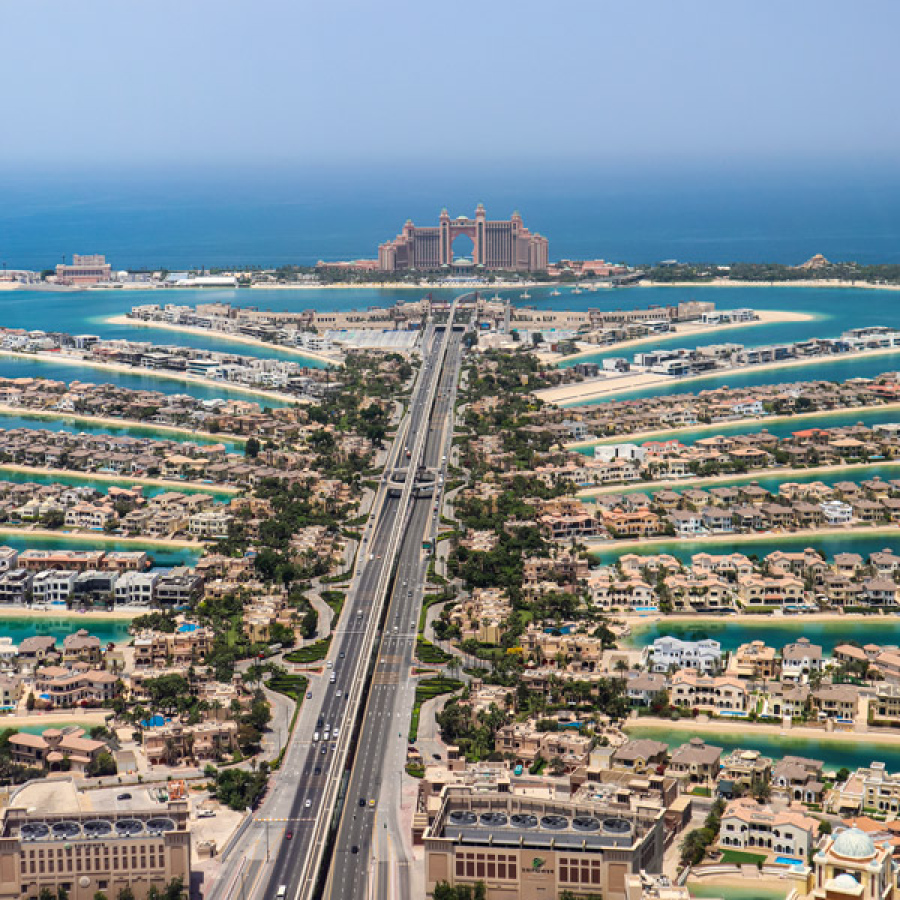The property ownership structure is a crucial framework for real estate markets, influencing the flow of foreign investment and the pace of economic development.
One model adopted by some countries to accelerate growth is the freehold approach to land and property ownership, backed by a strong legal system.
Freehold refers to the permanent ownership of a building and the land on which it stands. It has no time limit, giving the owner the right to rent, sell or transfer the property. This often makes it more attractive and profitable for investors than leasehold transactions, in which property is held only for a fixed period of time.
Two of the most prominent examples in recent history are Singapore and Dubai, which have successfully used freehold policy to expand their economies, attract foreign investment and strategically develop their real estate sectors.
Singapore
Singapore covers just 718 square kilometer and has a population of six million. Land is a scarce resource, yet land policy has played a central role in shaping the economy. By 2024, real estate contributed about 12 percent of Singapore’s GDP.
Forty percent of Singapore’s population are not citizens. Of these, 23 percent are permanent residents, one route to which is property investment. Some 90.8 percent of residents, citizens and permanent residents alike own their homes.
With a GDP of USD 561.9 billion, the real estate sector accounts for USD 69.1 billion.
Singapore introduced its freehold policy in 1973. Residents were allowed to buy property, but foreign companies and individuals could do so only under strict conditions. The freehold model was built on a robust legal framework that limited ownership unless certain criteria were met. While property ownership was not directly tied to investment, investment itself was linked to residency.
Residency could be obtained by starting a new business or expanding an existing one with an investment of USD 10 million, committing USD 25 million to a fund for local companies, or establishing a family office in Singapore worth at least USD 200 million and transferring USD 50 million of it to Singapore.
Once residency was secured, individuals could purchase property. However, additional buyer’s stamp duties were imposed: non residents, for example, were charged an extra 60 percent of the property’s value on each purchase. Residents were exempt from this surcharge for their first property, although they paid 1 percent on the first USD 180,000, 2 percent on the next USD 180,000, and so on.
Owners were also liable for seller’s stamp duty; 12 percent if sold within a year, 8 percent within two years, and 4 percent within three years.
Singapore’s freehold policy is reviewed every five years through a national master plan, which designates freehold zones. Developers are then authorized to build and use properties in line with government planning.

The model has produced notable successes. In 2010, Marina Bay Sands by Las Vegas Sands Co invested USD 5.6 billion to develop 616,000 square feet of property. Marina Bay Suites averaged USD 18,392 per square feet, generating USD 16.6 million in sales in the first quarter of 2025 alone. Marina One Residences, at USD 16,389 per square feet, recorded USD 23.6 million in sales in the same period.
Key lessons from Singapore:
- Freehold ownership attracts foreign investment.
- A strong legal framework and sound administration are essential.
- Expanding freehold raises real estate’s share of GDP and creates a sustainable source of government revenue.
Dubai
In 2002, Dubai reversed its policy and allowed foreigners to own land on a freehold basis, addressing the limitations of leasehold in driving growth. This was a pivotal move in diversifying its economy and drawing foreign capital.
Freehold zones such as Palm Jumeirah, Dubai Marina and Downtown Dubai quickly became global real estate hubs.
By 2023, Dubai’s GDP reached USD 117 billion, with real estate contributing 8 percent. The sector grew by 25 percent in the first quarter of 2024 compared with the previous year. Foreign investors accounted for 52 percent of transactions, worth USD 62 billion, generating more than USD 2 billion in revenue for the government in that quarter alone.
The 2006 Property Ownership Act designated special freehold areas, later expanded between 2011 and 2017. In January this year, Sheikh Zayed Road and Al Jaddaf were also declared freehold zones.
As in Singapore, Dubai’s freehold system is anchored in law. But in contrast, property transactions are simpler, and residency is directly linked to real estate investment.
An investment of AED 750,000 secures a two year residency visa; AED 2 million brings a 10 year “golden visa”. A property purchase worth AED 1 million qualifies for a five year visa for those looking to retire.

Alongside freehold, Dubai established Special Economic Zones under the Dubai Free Zone Council, exempting investors from corporate tax and import duty.
Demand has soared. Apartment prices rose 51 percent and villas 68 percent, particularly in freehold zones where foreign buyers dominate. These areas, insulated from the broader market, have seen consistent appreciation.
Developers such as Emaar (Dubai Marina) and Nakheel (Palm Jumeirah) have been central, each generating billions in transactions. In the first quarter of 2024, Dubai Marina recorded AED 14.9 billion in turnover, while Palm Jumeirah saw USD 41.5 billion.
Key lessons from Dubai:
- Diversifying the economy requires a robust real estate sector.
- Freehold policy works best under a strong legal and economic framework.
- Linking residency to property investment makes the market more attractive.
- Master developers play a critical role in shaping freehold zones.
Could Maldives follow?
Maldives is already recognized as one of the world’s most desirable tourist destinations, attracting investment from leading hotel chains. Its unique natural beauty offers further potential if the real estate sector were opened to freehold property ownership.
The examples of Singapore and Dubai suggest that allowing foreigners to buy property can bring foreign investment and link property purchases with residency or other concessions, creating a steady stream of investors.
Currently, the Maldivian constitution does not permit freehold ownership. As a result, investors show limited interest in developing special zones. Yet many believe the country could cultivate a strong real estate market if barriers were lifted.
Introducing freehold zones under a robust legal framework could transform the sector. Ownership would provide investors with assets they could rent or sell, generating revenue streams for themselves and the government alike. Each transaction including purchase, lease or resale would feed foreign exchange into the economy.
For Maldives, the lack of foreign exchange is among the most pressing challenges. The experience of Singapore and Dubai shows that freehold sales attract capital inflows that circulate through the domestic economy.
If constitutional and legal obstacles were removed and replaced with a transparent, well-regulated framework, freehold property ownership could become a powerful lever for diversifying the economy, attracting global investors and strengthening foreign reserves.